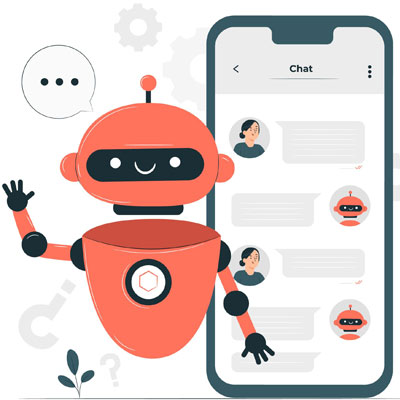
A medida que avanzamos hacia una era más digital los chatbots se han convertido en una característica común en numerosos sitios web y aplicaciones. Aunque ofrecen un nivel sin precedentes de automatización y eficiencia, también existen limitaciones y preocupaciones significativas en torno a su uso, rendimiento y privacidad.
Limitaciones y mal uso de los Chatbots
A pesar de las promesas de los proveedores de tecnología, los chatbots no están exentos de limitaciones. En primer lugar, es común que carezcan de la capacidad de entender y procesar el lenguaje natural de manera efectiva, lo que puede resultar en respuestas imprecisas o irrelevantes. Esto puede frustrar a los usuarios y, en última instancia, disminuir su confianza en la empresa o servicio.
En segundo lugar, muchos chatbots son mal utilizados en los sitios web, a menudo desplegados en situaciones en las que no aportan ningún valor real. Se utilizan para responder a consultas simples o frecuentes, pero en situaciones más complejas, los chatbots pueden no ser de mucha utilidad.
Privacidad y preocupaciones en el uso de Chatbots
Además, existe una preocupación creciente sobre la privacidad y la seguridad de los datos con respecto a los chatbots. Muchos de estos sistemas solicitan una cantidad excesiva de información personal, que puede ser mal utilizada o comprometida.
El Futuro de los Chatbots: Inteligencia Artificial Generativa y Procesamiento del Lenguaje Natural Avanzado
El desarrollo de chatbots y asistentes virtuales está evolucionando continuamente y, a medida que las tecnologías de inteligencia artificial (IA) y procesamiento del lenguaje natural (PLN) avanzan, se abre la puerta a un nuevo tipo de asistentes más inteligentes y capaces. La tecnología detrás de GPT (Generative Pre-trained Transformer), como la que usa OpenAI, es un ejemplo de esta evolución.
Estos asistentes avanzados están diseñados para entender el contexto y proporcionar respuestas más coherentes y relevantes, lo que mejora significativamente la interacción y la experiencia del usuario. En muchos casos, estos sistemas pueden reemplazar a los chatbots tradicionales, proporcionando una capacidad de respuesta y comprensión más allá de las preguntas y respuestas predefinidas.
TensorFlow, una biblioteca de código abierto para aprendizaje automático y redes neuronales profundas desarrollada por Google, puede ser utilizado para construir este tipo de asistentes. Sin embargo, es importante tener en cuenta que, aunque TensorFlow es una herramienta poderosa, el desarrollo de un asistente de conversación avanzado requiere un conjunto de habilidades especializadas y una comprensión profunda del aprendizaje automático y del PLN. También se necesita una gran cantidad de datos de entrenamiento para entrenar el modelo y hacer que funcione de manera efectiva.
Además, el uso de GPT y tecnologías similares implica ciertos desafíos. Aunque estos modelos son muy poderosos y pueden generar respuestas coherentes y relevantes, también pueden ser menos predecibles y más difíciles de controlar que los chatbots basados en reglas. Esto puede plantear desafíos en términos de moderación y garantía de que las respuestas del asistente son siempre apropiadas y útiles.




